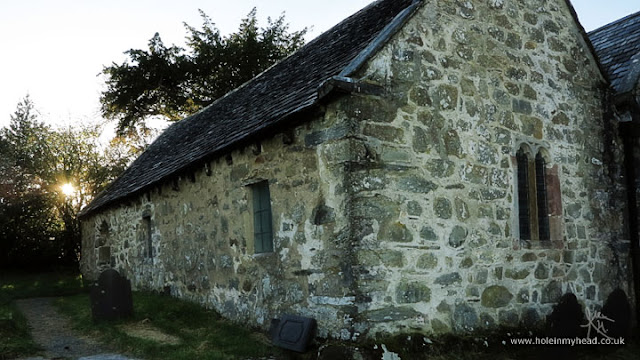Execution' of 28 Welsh boy hostages by King John (Welsh history shorts. )
In 1212 King John held 28 sons of Welsh noble families hostage.
Some as young as 12, lived at the castle for some time and then one day, King John ordered all the hostages executed.
"A chronicler states that the boy's pitiful cries rang around the castle as one after the other they were taken up on the ramparts and hanged in a row."
***The words bellow are taken from A short history of Nottingham castle ***
In order to keep the Welsh Prince Llewellyn in subjection, John, had taken as hostages 28 boys, ranging from 12 to 14 years of age, and kept them in his Castle at Nottingham. It is said the news came to the King while staying at his hunting palace at Clipstone that the Welsh Prince had again broken out in revolt. Hastily summoning his followers, he held a Council beneath the spreading branches of an oak tree (now known as Parliament Oak), when the execution of the. hostages was decided upon. Then he swore “by the teeth of God” that he would not eat again until he had wreaked his vengeance, and mounting his steed, he rode in all haste to Nottingham Castle, where he gave instructions for the execution of the hostages, as a preliminary to quelling the rising; and the shameful order was immediately carried out before his eyes, the boys being taken from their play—some screaming, others pleading in vain for mercy—and hanged on the Castle walls. Another barbarity recorded by Matthew Paris, confirms the despicable character of the King. A clerk of the Exchequer—Geoffrey by name — on small suspicion was thrown into a dungeon at Nottingham Castle and there done to death: “He closed him in leade, and so, by depryvinge him of al ayre bereft him of his life withal.”
In order to keep the Welsh Prince Llewellyn in subjection, John, had taken as hostages 28 boys, ranging from 12 to 14 years of age, and kept them in his Castle at Nottingham. It is said the news came to the King while staying at his hunting palace at Clipstone that the Welsh Prince had again broken out in revolt. Hastily summoning his followers, he held a Council beneath the spreading branches of an oak tree (now known as Parliament Oak), when the execution of the. hostages was decided upon. Then he swore “by the teeth of God” that he would not eat again until he had wreaked his vengeance, and mounting his steed, he rode in all haste to Nottingham Castle, where he gave instructions for the execution of the hostages, as a preliminary to quelling the rising; and the shameful order was immediately carried out before his eyes, the boys being taken from their play—some screaming, others pleading in vain for mercy—and hanged on the Castle walls. Another barbarity recorded by Matthew Paris, confirms the despicable character of the King. A clerk of the Exchequer—Geoffrey by name — on small suspicion was thrown into a dungeon at Nottingham Castle and there done to death: “He closed him in leade, and so, by depryvinge him of al ayre bereft him of his life withal.”


It must be noted that Paris has been found to be "economic with the truth", shall we say, with regard to facts. His language being dependent on how the person being written about was viewed by him and or his informants.
ReplyDeleteKing John is reported to have been so suspicious that he took hostage sons of a large number Barons in order to maintain control. So the hostages were taken from royalty and baronies across all the nations of Britain.
It must also be said that there was more violence directed against the Welsh, Scots & Irish by the English. The hangings in Nottingham did happen but the accuracy of the numbers and who they were may be disputed.
An example of the time is that in the same year Robert de Vieuxpont, the king’s lieutenant in Powys, `hanged at Shrewsbury Rhys ap Maelgwn, a 6 year old boy, who was a hostage with the king.
I can recommend reading https://magnacarta.cmp.uea.ac.uk/read/magna_carta_1215/Clause_49
This was a barbaric time indeed and heart wrenching to think that our ancestors would carry out such deeds in order to maintain control and power. Worse still, we see signs that such killing atrocities would and are still done today.